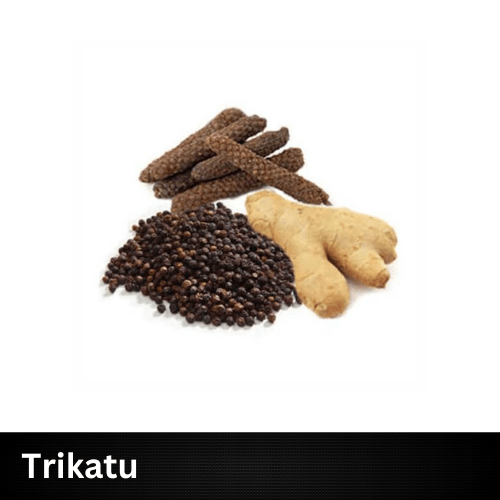The Brazil nut tree produces large, round fruits that contain about 10 to 25 seeds, which we know as Brazil nuts. The nuts are encased in a hard, woody shell that needs to be cracked open to access the edible seed inside. Each fruit can weigh up to 2 kilograms (4.4 pounds) and contains up to 20 Brazil nuts.
Brazil nuts are a nutritious food source that is rich in healthy fats, protein, fiber, and essential minerals such as selenium, magnesium, and zinc. They are a popular snack food and ingredient in many dishes and are also used to produce Brazil nut oil, which is used in cooking and cosmetics.
Brazil nut trees are also an important part of the Amazon rainforest ecosystem, providing habitat for a variety of animal species, including birds, monkeys, and rodents. The trees are also important for the livelihoods of many local communities in the Amazon, who depend on the nuts for food and income. However, over-harvesting and deforestation threaten the survival of these trees and the communities that depend on them, highlighting the importance of sustainable management practices.
- Castanha-do-Pará: This is the Portuguese name for Brazil nuts, and it means “chestnut from Pará,” which is a state in northern Brazil where many Brazil nut trees are found.
- Creamnut: This is a common name for Brazil nuts in the United States, likely because of the creamy texture of the nut inside its hard shell.
- Amazonian nut: This name emphasizes the fact that Brazil nuts are native to the Amazon rainforest.
- Para nut: This is another common name for Brazil nuts, which also refers to their origin in the state of Pará in Brazil.
- Bertholletia nut: This name is derived from the scientific name of the tree, Bertholletia excelsa.
- Monkey pot: This is a name given to the fruit of the Brazil nut tree because it is shaped like a pot and is often eaten by monkeys who help to spread the seeds.
10 Benefits of Bertholletia Excelsa / Brazil Nuts
Here are 10 potential benefits of consuming Bertholletia excelsa or Brazil nuts:
-
Rich in nutrients: Brazil nuts are a good source of protein, fiber, healthy fats, and important minerals like selenium, magnesium, and zinc.
-
May support heart health: Brazil nuts contain healthy fats, including monounsaturated and polyunsaturated fatty acids, which can help reduce inflammation and lower cholesterol levels.
-
May help regulate blood sugar: The high fiber content of Brazil nuts may help slow the absorption of sugar in the bloodstream, which can help regulate blood sugar levels.
-
May boost immunity: Brazil nuts are a rich source of selenium, which is important for immune function and may help protect against infections and illnesses.
-
May improve brain function: The healthy fats in Brazil nuts may support brain health and improve cognitive function.
-
May support thyroid function: Selenium is also important for thyroid function, and Brazil nuts are one of the richest dietary sources of this mineral.
-
May reduce inflammation: The antioxidants in Brazil nuts may help reduce inflammation and protect against oxidative stress.
-
May support bone health: Brazil nuts are a good source of magnesium, which is important for bone health and may help prevent osteoporosis.
-
May support muscle function: Magnesium is also important for muscle function and may help improve exercise performance.
-
May improve skin health: Brazil nuts are rich in vitamin E, which is important for skin health and may help prevent skin damage caused by UV rays and pollution.
Which type of Bertholletia Excelsa / Brazil Nuts
The most common variety of Brazil nut is the smooth-shelled type, which has a round shape and a smooth, light brown shell. This variety is typically larger and more uniform in size than the rough-shelled type, which has a more irregular shape and a rough, dark brown shell. The rough-shelled variety is less commonly available but is often considered to have a richer, more intense flavor than the smooth-shelled variety.
It’s worth noting that Brazil nuts are often sold in their shells, and it can be difficult to distinguish between different varieties based on appearance alone. When purchasing Brazil nuts, it’s a good idea to choose high-quality nuts that are fresh and have a crisp texture.
 Chemicals found in Bertholletia Excelsa / Brazil Nuts
Chemicals found in Bertholletia Excelsa / Brazil Nuts
-
Healthy fats: Brazil nuts are a good source of healthy fats, including monounsaturated and polyunsaturated fatty acids like oleic acid and linoleic acid.
-
Protein: Brazil nuts contain all nine essential amino acids, making them a complete protein source.
-
Fiber: Brazil nuts are a good source of dietary fiber, which can help regulate digestion and improve bowel function.
-
Selenium: Brazil nuts are one of the richest dietary sources of selenium, a mineral that is important for immune function, thyroid health, and antioxidant activity.
-
Magnesium: Brazil nuts are also a good source of magnesium, which is important for muscle and nerve function, bone health, and energy metabolism.
-
Zinc: Brazil nuts contain zinc, which is important for immune function, wound healing, and DNA synthesis.
-
Vitamin E: Brazil nuts are a rich source of vitamin E, a powerful antioxidant that helps protect cells from damage caused by free radicals.
-
Phytosterols: Brazil nuts contain phytosterols, which are plant compounds that can help lower cholesterol levels and reduce the risk of heart disease.
-
Polyphenols: Brazil nuts contain polyphenols, which are plant compounds that have antioxidant and anti-inflammatory properties and may help protect against chronic diseases.
-
Tannins: Brazil nuts contain tannins, which are plant compounds that can help prevent bacterial growth and improve gut health.

